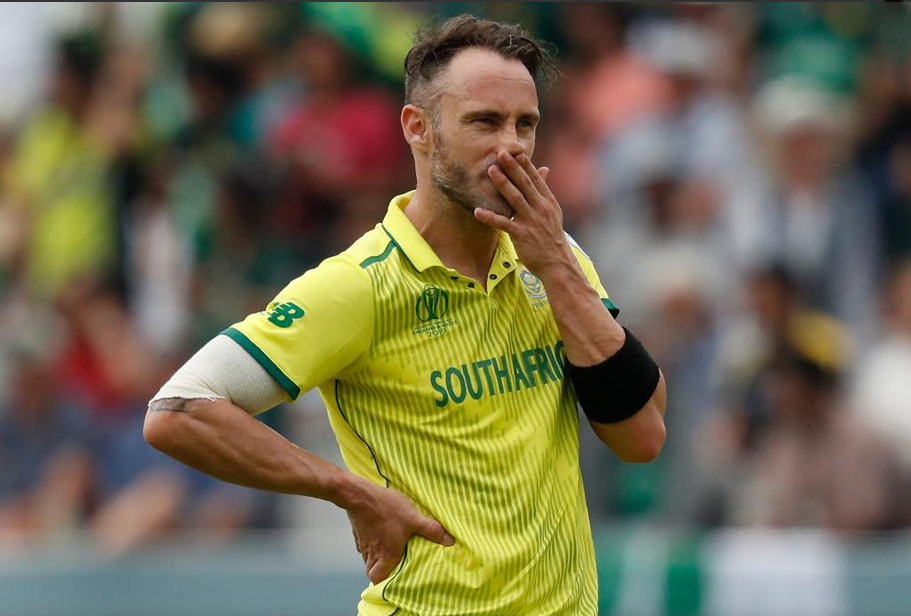The Proteas will never win a World Cup unless they come to terms with their painful past, writes JON CARDINELLI.
South Africa appear to be stuck in a never-ending cycle of World Cup disappointment.
The new era begins. A new coach and a new captain are appointed. The team wins a bilateral series. Then another, and another.
Then the team loses. The root causes for that failure are ignored when the team wins again.
The trend continues until the eve of the World Cup, where the coach and captain assure all and sundry that this time will be different.
‘Aren’t you worried about your record at past tournaments?’ a reporter inevitably asks. ‘Have you addressed the mental issue?’
The coach and captain refuse to entertain such questions, though. They might talk about the mental issue or even choking behind closed doors. In public, however, they dare not speak its name.
REPORT: Pakistan dash Proteas hopes
The Proteas went out of their way to exude a nonchalant demeanour in the lead-up to the current tournament. They said that they were going to enjoy it. They said that they weren’t affected by past campaigns.
There was no hiding the truth in the opening game against England, though. The flawed attitude and approach was just as apparent in the losses to Bangladesh, India, New Zealand and most recently Pakistan.
Some in the camp blamed the senior players while others pointed to a lack of experience in the side. Most commentators pointed a finger at the coach, at Cricket South Africa and a system that is in dire need of a overhaul.
‘It really has been difficult to watch,’ former South African skipper Graeme Smith tweeted after the loss at Lord’s on Sunday. ‘I try and consider the plans and thoughts but I’m baffled.’
Perhaps the latter group does have a point. Then again, surely the coaches and players need to take some responsibility, especially for shock losses to Bangladesh and Pakistan.
The demeanour of the players has been telling. A poor stroke, wide delivery or dropped catch has often been followed by a glazed look of helplessness if not indifference.
LEMKE: Fast bowlers in World Cup slow lane
There’s been no push to lift the intensity. There’s been no Plan B or even an admission that Plan A has not worked.
Smith is not the only South African who has found the perpetual car-crash a tragedy to witness.
‘It’s the hope that kills you.’ These words have been spoken and reshared so much on social media over the past few weeks that they may well be remembered as a slogan of sorts. It’s a dark reference, of course, to the manner in which the Proteas have raised and then dashed the public’s hopes in every single contest.
The wider cricketing community tends to expect these implosions every four years, which is why there have been so many retrospective articles and documentaries focusing on the Proteas’ choke in the 1999 World Cup semi-final at Edgbaston. Why South Africa excels in bilateral series and capitulates at ICC events remains a mystery and curiosity to every fan and critic with no close affiliation to the Proteas.
To be clear, the Proteas haven’t got themselves into a position to choke at this edition of the global showpiece. That said, the expressions of the players have been much the same as those worn by Lance Klusener and Allan Donald at Edgbaston 20 years ago.
Perhaps it’s time to acknowledge that this World Cup house is haunted. The Proteas need to confront their demons if they are to move forward.
The Proteas’ World Cup review should involve an assessment of the team’s mental preparations. There needs to be a move to make this a priority in the buildup to the 2023 tournament. South African teams can’t keep pretending this isn’t a problem.
There is hope in the sense that sports fans have seen this kind of spell broken before.
The All Blacks dominated the period between rugby World Cups for 24 years without winning the grand prize itself. There was always talk about the team’s tendency to choke on the big stage. After they won the World Cup in 2011, however, they went on to win another title in 2015.
If South Africa fail to tackle the issue head on, the cycle will start again.
Ottis Gibson will make way for another coach who has his eyes set on the 2023 World Cup crown. Faf du Plessis will make way for a younger captain, perhaps Aiden Markram. The Proteas will win a few bilateral series and claw their way back to No 1 in the ICC ODI rankings.
Come the next global tournament, however, their ignorance and refusal to deal with a greater problem will lead to further outrage and embarrassment.
Photo: Cricket World Cup/Twitter







